Intro
Discover key facts about progestin pills, including their effects, benefits, and potential side effects, to make informed decisions about hormonal birth control and womens health management.
The use of progestin pills, also known as the mini-pill, has become increasingly popular among women seeking effective birth control methods. Progestin-only pills are an attractive option for those who cannot or prefer not to use combined oral contraceptives that contain both estrogen and progestin. Understanding how progestin pills work, their benefits, and potential side effects is crucial for making informed decisions about reproductive health. As we delve into the world of progestin pills, it becomes clear that knowledge is power, especially when it comes to managing one's fertility and overall well-being.
Progestin pills have been around for decades, offering a reliable means of contraception for many women. However, despite their widespread use, there are many misconceptions and misunderstandings about how these pills work and what they can do. For instance, some people believe that progestin pills are less effective than combined oral contraceptives, while others think they are only suitable for breastfeeding mothers. The truth is, progestin pills are a versatile and effective form of birth control that can be used by a wide range of women, regardless of their age, health status, or lifestyle.
The importance of understanding progestin pills cannot be overstated. With so many birth control options available, it's essential to have accurate and comprehensive information about each method to make informed decisions. Progestin pills, in particular, offer a unique set of benefits and advantages that make them an attractive choice for many women. From their ability to regulate menstrual cycles to their potential to reduce the risk of certain health conditions, progestin pills are a valuable tool in the pursuit of reproductive health and autonomy. As we explore the world of progestin pills, we'll uncover the facts, benefits, and potential drawbacks of this popular form of birth control.
What are Progestin Pills?
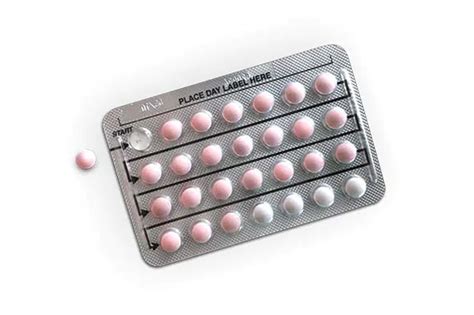
Progestin pills are often prescribed for women who are breastfeeding, as they do not affect milk production. They are also a good option for women who cannot take estrogen due to certain health conditions, such as blood clots or high blood pressure. Progestin pills are available in various forms, including traditional progestin-only pills and extended-cycle regimens.
How Progestin Pills Work
Progestin pills work by altering the body's natural hormonal balance to prevent pregnancy. The progestin in the pill thickens cervical mucus, making it more difficult for sperm to penetrate and fertilize an egg. Additionally, progestin pills thin the lining of the uterus, making it less likely for a fertilized egg to implant. This dual mechanism of action makes progestin pills an effective form of birth control.Progestin pills also have a secondary effect on ovulation, although this is not their primary mechanism of action. Some women may experience changes in their menstrual cycle, including irregular periods or amenorrhea (the absence of menstruation). However, this is not a cause for concern, as it is a common side effect of progestin pills.
Benefits of Progestin Pills
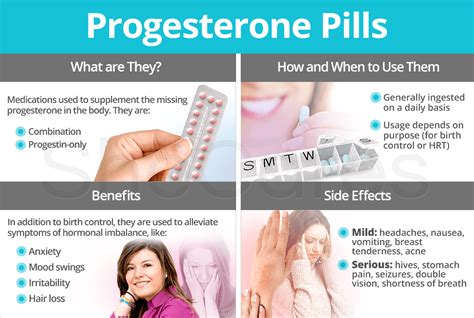
- Effective birth control: Progestin pills are over 99% effective in preventing pregnancy when taken correctly.
- Convenience: Progestin pills are easy to take and do not require any special preparation or equipment.
- Flexibility: Progestin pills can be taken at any time of day, although it is recommended to take them at the same time each day.
- Low risk of side effects: Progestin pills have a lower risk of side effects compared to combined oral contraceptives.
- Suitable for breastfeeding mothers: Progestin pills do not affect milk production, making them a good option for breastfeeding mothers.
Common Side Effects of Progestin Pills
While progestin pills are generally well-tolerated, some women may experience side effects. Common side effects of progestin pills include:- Irregular periods or spotting
- Breast tenderness
- Headaches
- Dizziness
- Nausea
These side effects are usually mild and temporary, resolving on their own within a few months of starting the pill. However, if side effects persist or worsen, it is essential to consult a healthcare provider for guidance.
Who Can Take Progestin Pills?
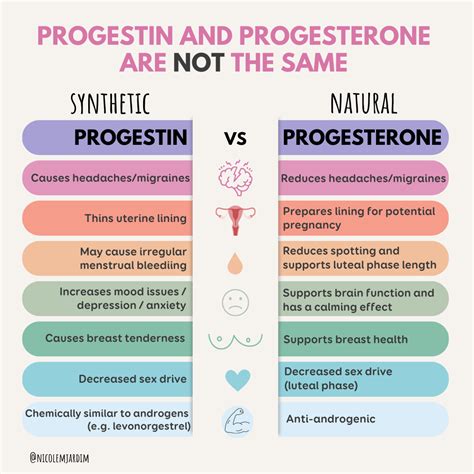
- Breastfeeding mothers
- Women who cannot take estrogen due to certain health conditions
- Women with a history of blood clots or high blood pressure
- Women who experience migraines with aura
- Women who are over 35 years old and smoke
However, progestin pills may not be suitable for women with certain medical conditions, such as liver disease, breast cancer, or unexplained vaginal bleeding. It is essential to consult a healthcare provider to determine whether progestin pills are a good option for individual circumstances.
Progestin Pill Brands
There are several progestin pill brands available, each with its own unique characteristics and features. Some popular progestin pill brands include:- Micronor
- Nor-QD
- Heather
- Errin
- Jolivette
Each brand has its own formulation and dosing schedule, so it is essential to follow the instructions provided by the healthcare provider or the manufacturer.
Progestin Pill Effectiveness
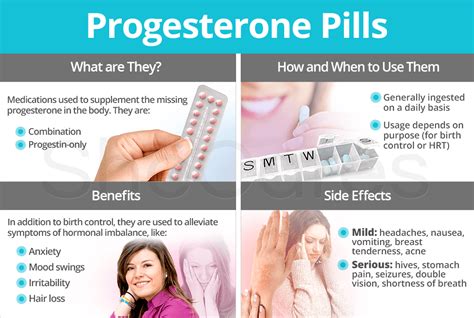
To maximize the effectiveness of progestin pills, it is essential to take them at the same time each day and not miss any doses. If a dose is missed, it is crucial to take it as soon as possible and use a backup method of birth control, such as condoms, for the next 48 hours.
Progestin Pill Interactions
Progestin pills can interact with certain medications, reducing their effectiveness or increasing the risk of side effects. Some medications that can interact with progestin pills include:- Antibiotics
- Anti-seizure medications
- Anti-depressants
- Blood thinners
It is essential to inform the healthcare provider about any medications being taken, including prescription and over-the-counter medications, to ensure safe and effective use of progestin pills.
Progestin Pill and Weight Gain

To minimize the risk of weight gain, it is essential to maintain a healthy diet and exercise regularly. A balanced diet that includes plenty of fruits, vegetables, whole grains, and lean protein can help support overall health and well-being.
Progestin Pill and Acne
Progestin pills can have a positive effect on acne, reducing the severity and frequency of breakouts. The progestin in the pill can help regulate hormonal imbalances that contribute to acne, leading to clearer and healthier-looking skin.However, some women may experience an initial worsening of acne symptoms when starting progestin pills. This is usually temporary, and acne symptoms should improve within a few months of starting the pill.
Progestin Pill and Menstrual Cycle
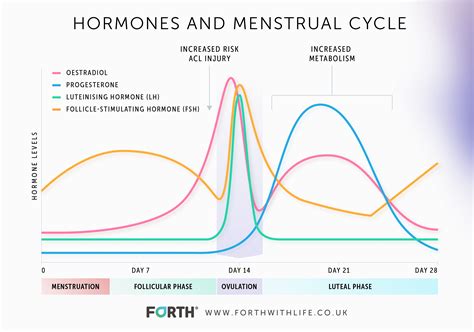
- Irregular periods
- Spotting or light bleeding
- Heavy or prolonged bleeding
- Amenorrhea (the absence of menstruation)
These changes are usually temporary and should resolve on their own within a few months of starting the pill. However, if changes in the menstrual cycle persist or worsen, it is essential to consult a healthcare provider for guidance.
Progestin Pill and Fertility
Progestin pills can affect fertility, although this is usually temporary. The progestin in the pill can suppress ovulation, making it more difficult to conceive. However, fertility should return to normal within a few months of stopping the pill.It is essential to note that progestin pills are not a form of emergency contraception and should not be used as a means of preventing pregnancy after unprotected sex. If pregnancy is desired, it is recommended to stop taking progestin pills and consult a healthcare provider for guidance.
What are the benefits of progestin pills?
+Progestin pills offer several benefits, including effective birth control, convenience, flexibility, and a low risk of side effects. They are also suitable for breastfeeding mothers and women who cannot take estrogen due to certain health conditions.
How do progestin pills work?
+Progestin pills work by thickening cervical mucus, making it more difficult for sperm to penetrate and fertilize an egg. They also thin the lining of the uterus, making it less likely for a fertilized egg to implant.
Can progestin pills be used for emergency contraception?
+No, progestin pills are not a form of emergency contraception and should not be used as a means of preventing pregnancy after unprotected sex. If pregnancy is desired, it is recommended to stop taking progestin pills and consult a healthcare provider for guidance.
How long does it take for progestin pills to become effective?
+Progestin pills are usually effective within 2-3 days of starting the pill. However, it is essential to take the pill at the same time each day and not miss any doses to maximize its effectiveness.
Can progestin pills be used by women with a history of blood clots or high blood pressure?
+Yes, progestin pills can be used by women with a history of blood clots or high blood pressure. However, it is essential to consult a healthcare provider to determine whether progestin pills are a good option for individual circumstances.
In conclusion, progestin pills are a reliable and effective form of birth control that offer several benefits and advantages. By understanding how progestin pills work, their benefits, and potential side effects, women can make informed decisions about their reproductive health and autonomy. Whether you're a breastfeeding mother, a woman with certain health conditions, or simply looking for a convenient and flexible form of birth control, progestin pills are definitely worth considering. So why not take the first step towards taking control of your reproductive health today? Share this article with your friends and family, and don't hesitate to reach out to a healthcare provider to learn more about progestin pills and how they can benefit you.
